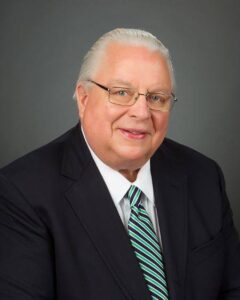As a general rule, a person or company is liable for the conduct of employees and other agents. This is known as vicarious liability, in which the “principal” is held liable for the conduct of its “agents”. The primary test for determining whether a principal/agent relationship exists is whether the principal has the right to control the conduct of the agent. Thus, the flip side of the rule of vicarious liability is that one generally is not liable for the conduct of an independent contractor, who is hired to perform services with little or no control by the potential “principal”.
An exception to the rule of non-liability for independent contractors has been developed for cases in which the potential principal engages in conduct that makes it appear the contractor is actually the principal’s agent. This doctrine is known as “apparent agency”. Traditionally, a plaintiff proves apparent agency by establishing the following elements: (1) the principal actually or negligently allowed the contractor to exercise authority on the principal’s behalf, (2) the plaintiff had knowledge of the facts and a good faith belief that the contractor possessed such authority, and (3) the plaintiff relied on the apparent authority to his or her detriment.
The doctrine of apparent agency is often used by plaintiffs in an attempt to hold hospitals (and other institutional providers) liable for the conduct of physicians working in the hospital, even when the physician is actually an independent contractor. As it relates to this more specific application of the apparent agency doctrine, the Tennessee Supreme Court has held that a plaintiff must prove the following elements: (1) the hospital held itself out to the public as providing medical services, (2) the plaintiff looked to the hospital rather than to the individual physician to perform those services, and (3) the patient accepted those services in the reasonable belief that the services were provided by the hospital or a hospital employee. In practice, all of these elements are essentially presumed true when a patient receives care from a physician in a hospital.
Using the doctrine of apparent agency, plaintiffs have successfully established hospital liability for any number of different types of specialists working in, but not employed by, the hospital. Often, apparent agency is used to hold a hospital liable for the care provided by an emergency room physician or radiologist. It is in these common situations and a couple others, however, that the doctrine of apparent agency falls apart.
As stated above, in order to establish a hospital’s liability for the conduct of an independent contractor physician, a plaintiff must prove that he or she had a “reasonable belief” that the care was provided by the hospital or its employee. However, it is also firmly established in Tennessee that all people are presumed to know the law (“ignorance of the law is no excuse”). The rub becomes apparent upon recognition of the fact that hospitals, by statute, are prohibited from employing emergency room physicians, radiologists, anesthesiologists and pathologists. If all people are presumed to know the law, it must be presumed that a patient receiving care from an emergency room physician knows that the physician is not, and cannot be, a hospital employee. It should be impossible for a patient to prove that he or she had a “reasonable belief” that, contrary to the law, the physician was employed by the hospital.
In spite of this apparently irreconcilable conflict, it remains true in most situations that a hospital is subject to essentially automatic liability for negligent care provided by physicians working in the hospital – even physicians it is prohibited from employing. Moreover, this prohibition removes one obvious response to the situation. In the last few years, hospitals have begun to employ more and more physicians. It is likely that at least one reason for this is that hospitals want more control over those physicians, realizing that it will be held responsible for the physicians’ conduct regardless. As it relates to emergency room physicians, radiologists, anesthesiologists and pathologists, however, this option is not available. The hospital is stuck in a situation in which it will be held liable for the conduct of physicians it is legally prohibited from employing.
Tennessee’s appellate courts have yet to address this situation. They ultimately will. In this author’s opinion, the appropriate resolution is to prohibit plaintiffs from asserting apparent agency when care provided by emergency room physicians, radiologists, anesthesiologists and pathologists is at issue. As in any other context, a patient should be presumed to know that hospitals are legally prohibited from employing these physicians. The patient therefore cannot have a “reasonable belief” otherwise and, as a matter of law, agency cannot be apparent.



